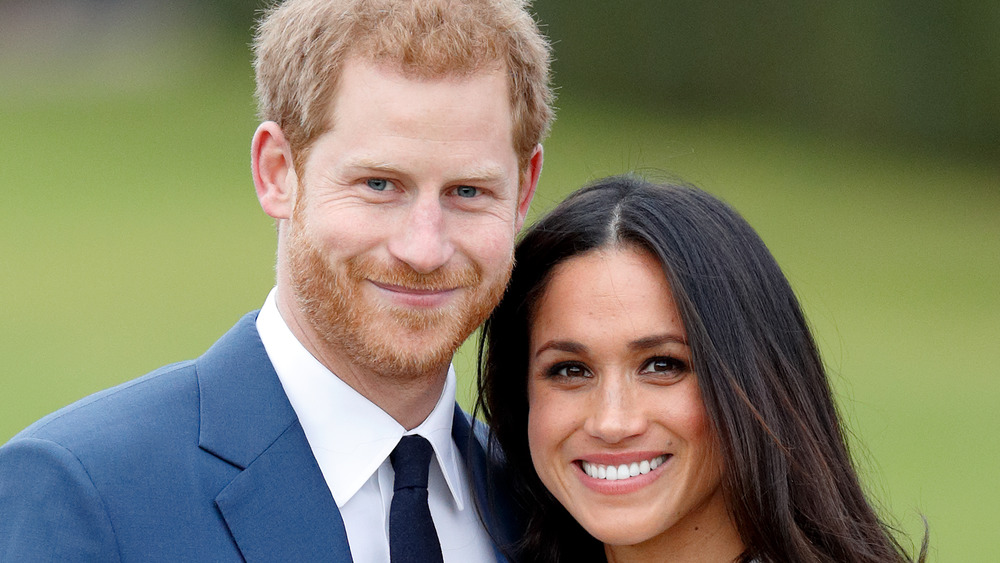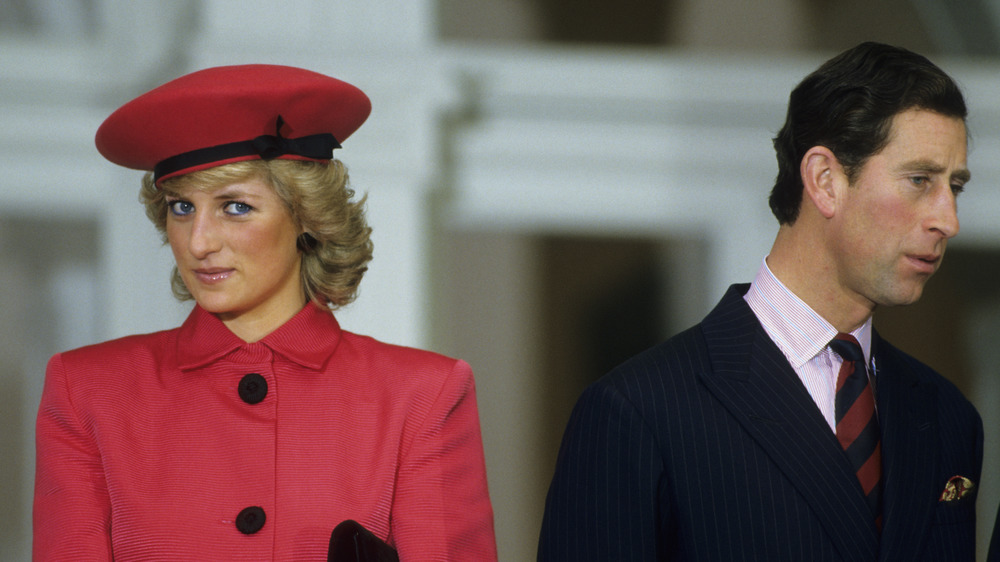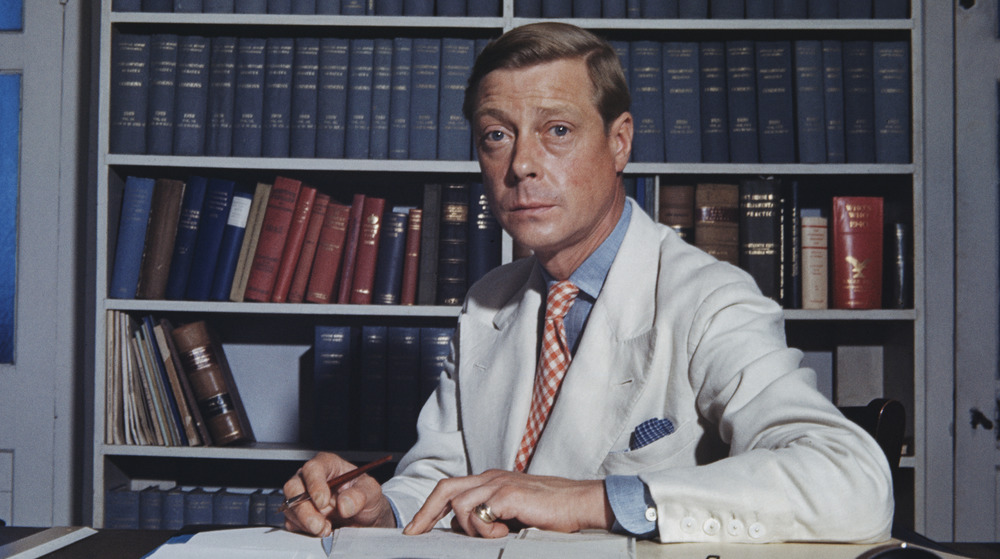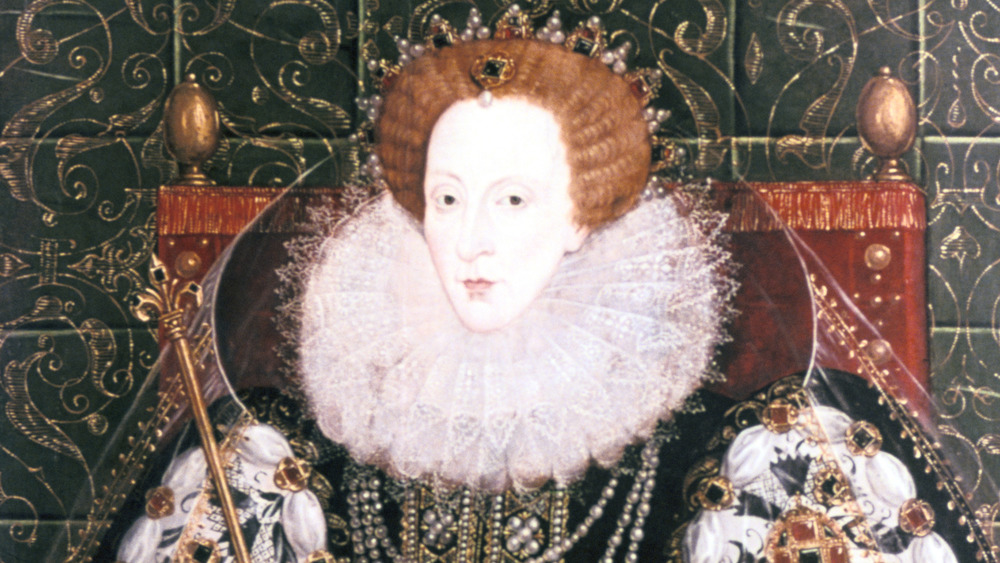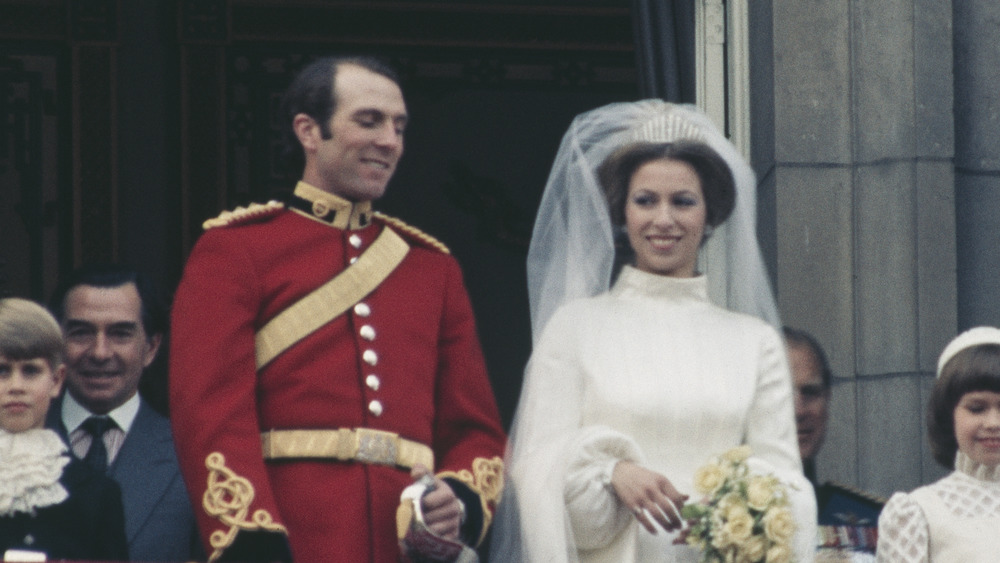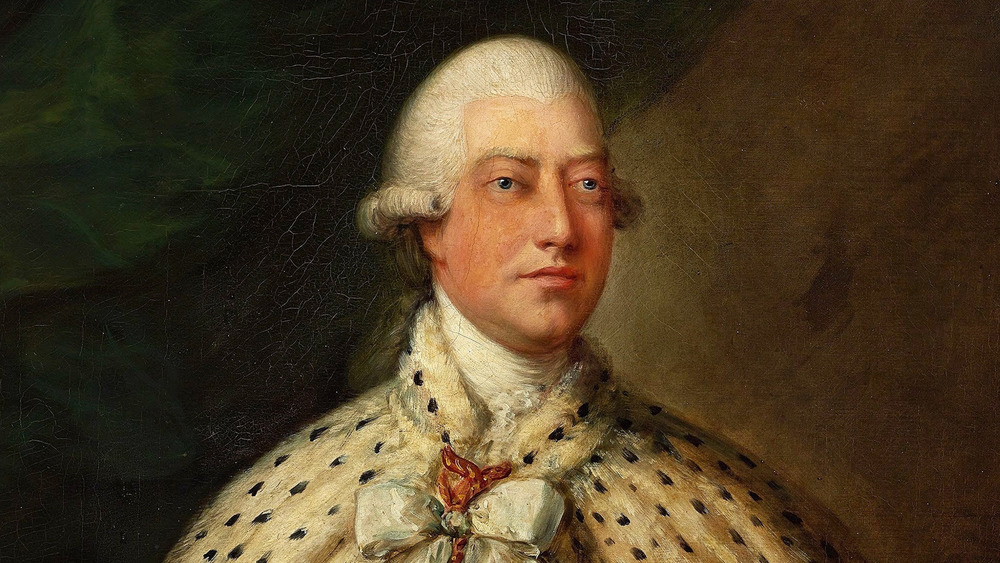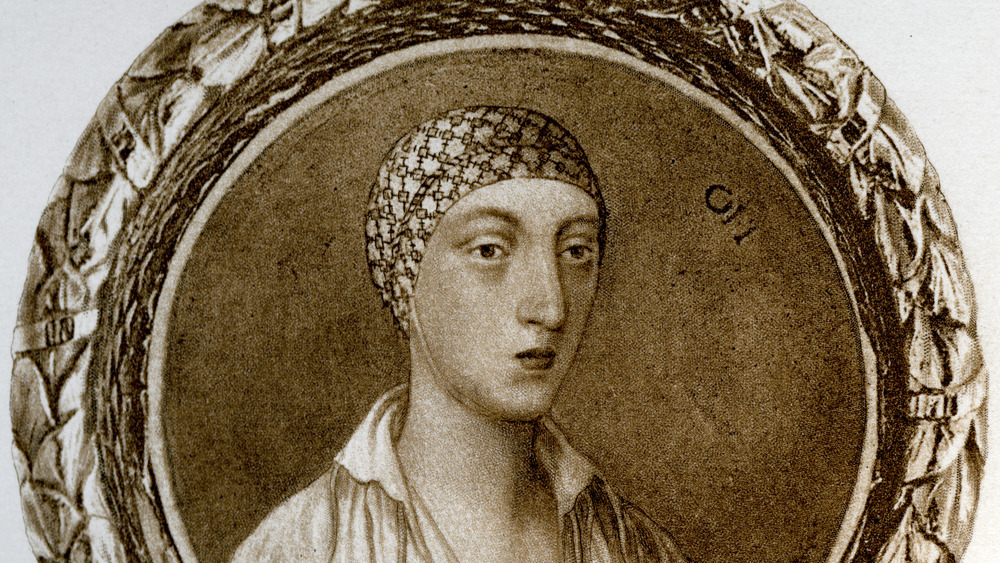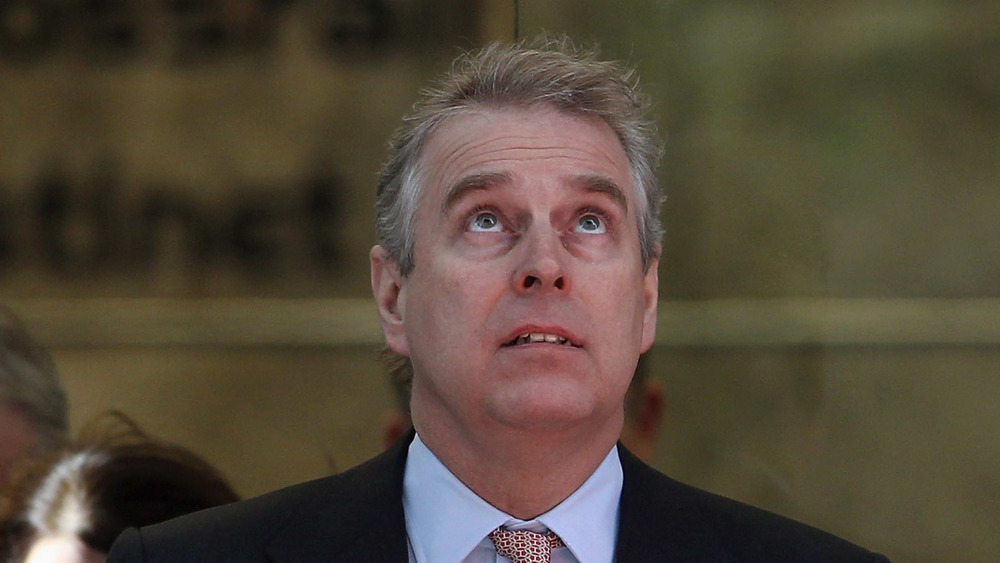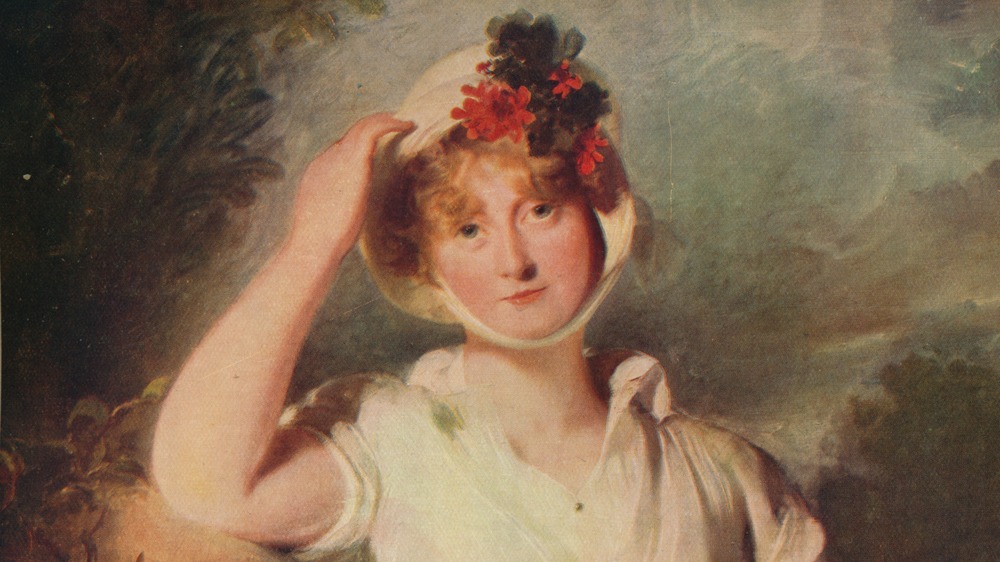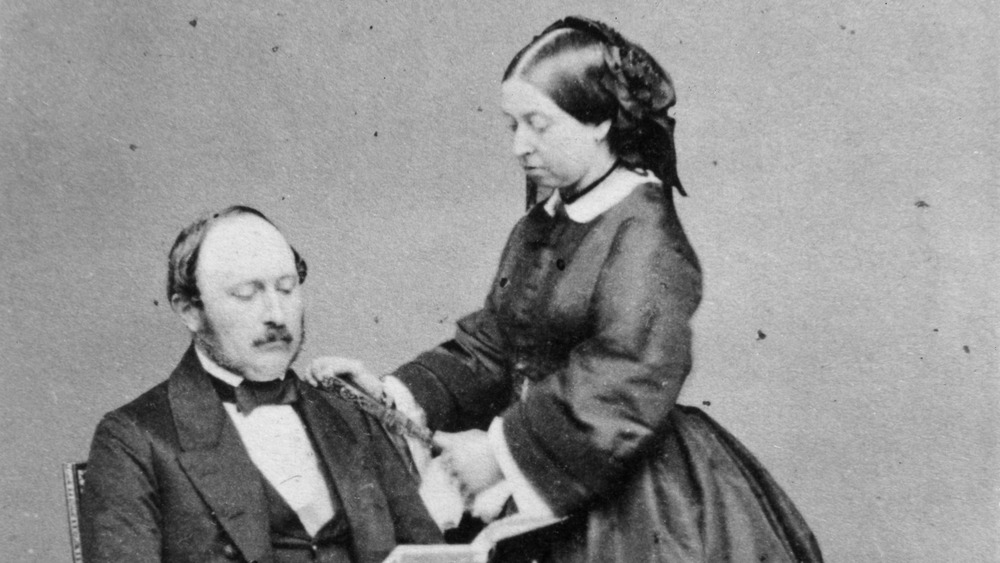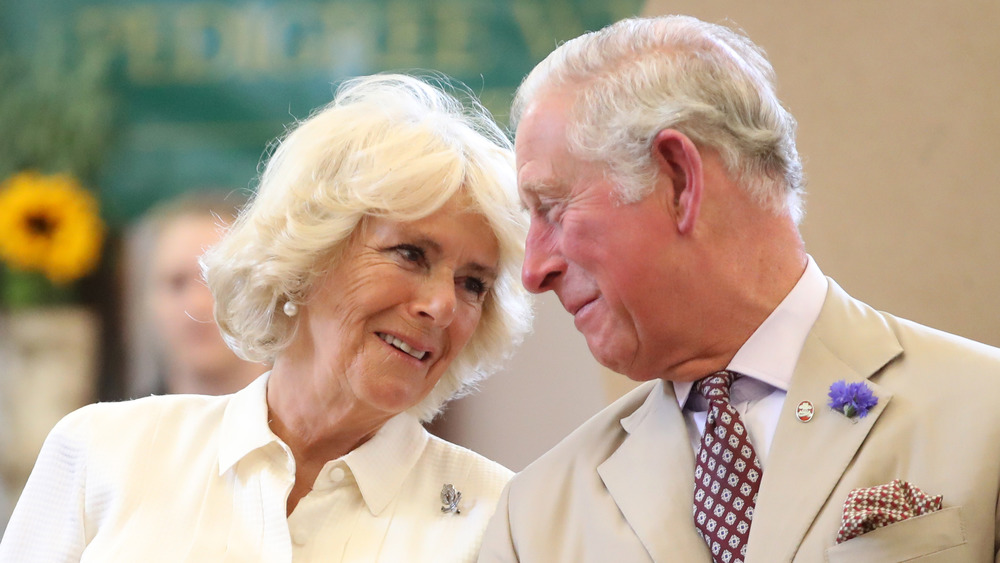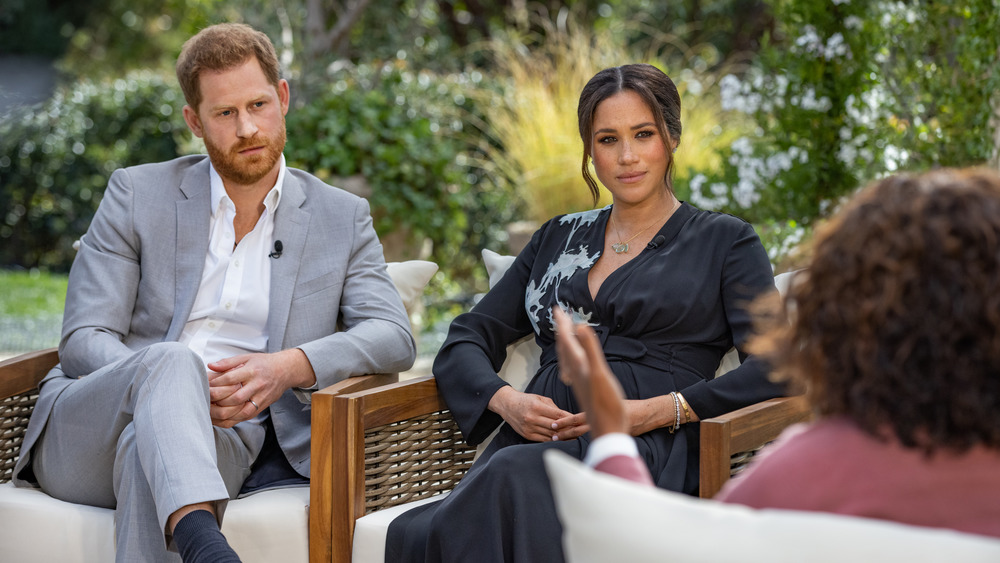The Biggest Lies The British Royal Family Ever Told
Royalty is pretty strange by default, but by their global visibility alone, the British royals take home the questionable prize of "most notorious carnival act in a ceremonial leader position." Though their history has plenty of blood, drama, and tragic deaths, their current main export seems to be crazy scandals.
The thing is, that has pretty much always been the case. Though the advent of tabloid press has made royal antics rather more public, the crown has a vast history of bizarre unsolved mysteries and odd occurrences, almost all of which seem to have involved some sort of secrecy or even blatant lies. Today, we'll take a look at some of the most amazing untruths and deceptions that the royal family has ever unleashed upon the unwary world.
There have, of course, been several branches of the British and English royal families over the course of centuries — Saxe-Coburg and Gotha, Hanover, Stuart, Tudor and what have you. For the purposes of demonstrating just how ace they all have been at lying, we're reaching out a little bit beyond the current Windsors, and take a deep dive in the history of the crown. Hang on to your hats, folks, because we're about to witness some mightily tall tales.
The doomed marriage of Charles and Diana was presented as a happy one
In hindsight, the marriage of Prince Charles and Princess Diana was very much not a happy, loving union. However, as Reader's Digest tells us, before things fell apart and they filed for divorce, the public believed for a long time that their union was a fairy tale romance of the highest order. Little did the world — and, initially, Diana — know about Charles' affection for Camilla Parker Bowles. The princess did find out about Charles' true feelings well before the world did, thanks to multiple incidents that made Diana suspect that something was going on between the prince and Camilla, and it probably didn't exactly help that Charles seemed to display significantly less affection for Diana. When their engagement was announced in 1981, a journalist asked whether they were in love. Diana's easy "Of course" was met with Charles giving a little laugh and saying: "Whatever 'in love' means." Ouch.
The rift between the two was deep even before the wedding bells tolled. Charles allegedly wept on the night before the wedding, while Diana actually considered calling off the whole thing — only to be told by her own siblings that it wasn't her call. A fairy tale romance, indeed.
The abdicated king Edward VIII really liked Hitler
Edward VIII became king in 1936, but as News.com.au reports, he left the throne the very next year in order to marry his one true love, Wallis Simpson — an American divorcee whom the powers that be would never have accepted as his queen. Romantic as this tale was, it had ample opportunity for all sorts of deceits and lies. Yet, this scandalous event was actually pretty up front and in-your face. Edward's Nazi connections, on the other hand? Those were a whole other thing.
The less than exemplary relationship between the ex-king and the rest of the Royal family would be easy to chalk up to the whole "leaving the throne for a woman" thing. However, the real reason behind the rift was reportedly the one they didn't tell you about: Edward was actually super into Nazi Germany, and pals with Adolf Hitler himself. Edward seems to have liked Hitler's regime because unlike England, Germany wholeheartedly supported his union with Simpson. In reality, though, Hitler was conspiring to undermine Edward's trust in his family, and to reinstate him as a pro-Reich puppet monarch.
The plan never came to fruition, and while the public was aware that Edward had connections to Germany, the whole mess was such that Winston Churchill himself worked to cover up the damning correspondence between Edward and the Germans. The full extent of the former king's Nazi connections wasn't uncovered until 1957.
Elizabeth I, the 'virgin queen'
Elizabeth I ruled England from 1558 to 1603, and as Encyclopedia Britannica tells us, she managed to navigate the turbulent inner workings of the country to establish herself as a major force in European political arenas, as well as a major impact on many other aspects of life. Let's just say that they don't call it "The Elizabethan Age" for nothing.
Apart from her vast influence and massive popularity, one of Queen Elizabeth's defining traits was that she remained unmarried throughout her reign, leading to the commonly used sobriquet "The Virgin Queen," which was actively enforced by the queen herself and her bedchamber ladies (per the BBC's History Extra). However, that one might have been a slight ... exaggeration.
The exact status of Elizabeth's carnal affairs has always remained officially unclear, and more power to her for that. Yet, people couldn't help but note that she was extremely fond of flirting with handsome courtiers, and speculation about her hidden exploits ran rife across the continent. After her death, some have even suspected that the great queen sometimes let these personal matters influence her decisions. The truth, as is often the case in such ancient matters, remains shrouded in history, and it's highly likely that stories of Elizabeth's promiscuity were somewhat embellished by the era's patriarchal attitudes. Even so, historians seem to agree that she was very, very close with one Robert Dudley, whose wife mysteriously fell down a staircase and died in 1560.
Princess Anne and Mark Phillips had a pretty deceitful marriage
Princess Anne married Captain Mark Phillips, an Olympic equestrian and military man, in 1973 — but as Town & Country writes, the union of a dashing captain and an admired princess doesn't exactly guarantee a happy forever after. The pair's marriage was a strained and rumor-filled one, and in 1989, People reported an allegation that Anne was romantically involved with a younger Naval officer. However, at that point, the marriage was already on the rocks, and Anne and Phillips separated the same year.
Incidentally, Anne eventually married that very same Naval officer, Vice Admiral Timothy Laurence. They had been in a secret relationship for years. Even so, it was ultimately Phillips who was hiding the real bombshell: A child born of an extramarital affair in New Zealand in 1985. Per the Express, he went to great lengths to keep this daughter hidden from the public and the Royal family, to the point of paying alimony of sorts under the guise of "consultant" payments, and allegedly even having his agent threaten the mother. Even the daughter herself was under the impression that her father was dead for the first eight years of her life.
George III was ushered away from the public eye when his mental health worsened
It would be wrong to say that the mental health problems of George III were entirely secret, since they're what he's best known for these days. However, as the BBC notes, a spirited attempt was made to hide his diminishing faculties from the public, and whenever he took a turn for the worse, he was hauled off to the distant Kew Palace in an effort to pull a "nothing to see here, folks." Still, people talk, and this attempt to keep the situation on the down low didn't quite work. As The Crown Chronicles writes, the rumors of the king's "madness" — which has been explained as porphyria, arsenic poisoning, or most likely bipolar disorder — ran rampant. The stories could get quite creative, like the one in which he supposedly mistook a tree for the King of Prussia and tried to shake its hand.
While it's true that George was pretty far gone during his final years, the whole scenario did him dirty, since he was actually a pretty capable ruler for the majority of his six-decade stint on the throne. Even during his final years of ailing mental health, he was sorely missed by the government — because when he was at the top of his game, George was a cool-headed dude who could act as a buffer to the era's politicians flaring tempers and make informed decisions.
The curious case of Henry VIII's illegitimate son
Henry VIII was a man of many messed-up stories, but as the BBC's History Extra tells us, the king did love his son. There was just one minor problem: This particular son was born from an extramarital affair, and as such, had no business in the legitimate succession. The king dealt with this in a characteristically bombastic Henry VIII fashion. When the child was 6-years-old, he introduced him to the court with great fanfare, and gave him a bunch of titles that made the boy the top noble of the kingdom.
For a long time, the young Henry Fitzroy seemed to be on track to become the next monarch, illegitimate or not. However, Henry VIII never fully embraced the option. He never actually legitimized the kid, so in the strictest official sense, he was basically just some dude the king really liked. Also, when a mystery illness took young Fitzroy's life at just 17-years-old, the king seemed to go to great lengths to avoid even acknowledging the death in public. As ambassador Eustace Chapuys described it, Fitzroy's burial in the unassuming Thetford Priory was as unceremonious as his early title shower had been luxurious. "[...] after being dead eight days, [Fitzroy] has been secretly carried in a wagon, covered with straw, without any company except two persons clothed in green, who followed at a distance, into Norfolk," Chapuys wrote.
Prince Andrew and the Jeffrey Epstein case
This one comes with plenty of "alleged" and "reportedly," since the case is still ongoing. However, the things Prince Andrew said in his 2019 BBC Newsnight interview about his alleged links to sex offender Jeffery Epstein were certainly troubling enough that, as The Guardian notes, Queen Elizabeth II opted to drop Andrew from his public duties altogether just a few days later.
The prince had been socializing with Epstein and his associate Ghislaine Maxwell on multiple occasions, and was himself facing accusations of sleeping with a minor who was allegedly trafficked by Epstein. Andrew made a series of outlandish statements throughout the interview, claiming that he was once incapable of sweating, and saying that he doesn't recall even meeting the teenager — which was curious, seeing as The Times notes that there's a photo of them together, though Andrew has also contended that it's probably not him in the photo (via BBC). Sources have also claimed that the prince lied about how long he'd known Epstein.
Regardless of the actual veracity of Andrew's claims (or lack of it), the interview turned out to be a massive disaster that has earned the prince plenty of unwanted attention — from the public and law enforcement alike. It remains to be seen if Maxwell's upcoming trial brings anything about Andrew's alleged involvement to light, but as Vanity Fair notes, it's unlikely that he will be able to return to his normal life in a hurry.
George IV tried to ruin Queen Caroline's reputation
According to Carolyn Harris of Royal Historian, the year was 1820, and King George IV wasn't happy with his wife, Queen Caroline. In fact, George was desperate to get a divorce, but since the only acceptable reason to do so at the time was adultery, there was only one thing for a determined king to do: Launch an epic smear campaign against Caroline, take things to the Parliament, and very, very publicly expose the queen's alleged dalliances.
This did not go well ... for George IV. The public was happy enough to hear sordid details, but it also promptly sided with Queen Caroline, knowing full well that the king himself was hardly blameless in matters of adultery. It didn't exactly help that the queen's attorney, Lord Brougham, roughed up His Majesty's integrity with accusations of conspiracy and bribery, and threatened the king with revelations of George's own debauchery. George drew comparisons to the unsavory Emperor Nero of Rome, and although the king's motion ultimately passed, the public opinion was so overwhelmingly on Caroline's side that the government decided to play it safe and withdraw it.
At the end of the day, the king's attempt to slander Queen Caroline cost him the support of the public ... and the circus around the pair's animosity marked the beginning of the tabloid press paying constant attention to the royals. Whoops.
Queen Victoria's 'perfect' marriage
As Biography tells us, Queen Victoria's lengthy reign from 1837 to 1901 gave the kingdom defining advancements like the London Underground, and massive leaps in commerce, science, technology, and arts. She ruled through the majority of the Victorian era alone, because her husband, Prince Albert, died in 1861 — a good four decades before her reign's end.
Per the BBC's History Extra, the queen and the prince were seen as the gold standard of a great relationship and proper family values, and Victoria certainly devoted much of her energy to convincing the world that her relationship with her late husband had been super awesome. She built an impressive mausoleum with sculptures of her and Albert lying harmoniously in rest, and personally put together much of Albert's 1867 biography, The Early Years of the Prince Consort, with a predictably romantic approach to the subject of their relationship.
In reality, however, their life was not quite as full of domestic bliss as Victoria would have you believe. Albert was a stiff, unpopular man who liked to wield power like a king despite not being one, while Victoria was prone to tantrums and greatly conflicted by her position as the "inferior" party of their union and Albert's ruler at the same time. Albert died at the young age of 42, before they could work through their various strains — which may have influenced Victoria's desire to retroactively whitewash the relationship.
Prince Charles made up a title for Camilla Parker Bowles
For all intents and purposes, Prince Charles' marriage to Camilla Parker Bowles has been a considerably less tragic affair than his union with Princess Diana, but as Reader's Digest tells us, just because the controversies are smaller doesn't mean that there are no controversies.
When Charles at some point ascends to the throne as king, Camilla's official title will be "Queen consort," and in the event of her outliving him, it will be updated to "Queen Camilla, the dowager queen." However, on his own official website, Charles stated that her official title will be "Princess consort" — a title that's admittedly cuter, but also one that can't be applied to the wife of a king in any circumstances. In fact, king or not, Charles simply doesn't have the power to alter Camilla's title in any way — she'll be "Queen consort," and that's that.
The "Princess consort" claim eventually disappeared from Charles' site ... because, according to him, it wasn't really a thing that people asked about anymore.
The Sussexes get real
In January 2020, the Duke and Duchess of Sussex, Prince Harry and Meghan Markle, announced that they would move away from the royal family's public funding, while also taking a step back from the family itself (via Time). They stated that the decision came "after many months of reflection and internal discussions," and though their declaration on Instagram noted that their relationship with Queen Elizabeth II, Prince Charles, Prince William and "all relevant parties" remained functional, it seemed clear that something was going on.
Then came Meghan and Harry's interview with Oprah Winfrey, and it became clear that something, indeed, was up. Per NBC News, the interview piled embarrassment upon embarrassment on the royal family, as the Sussexes alleged that Meghan's time with them had involved racist attitudes and flippancy towards her mental health. She even revealed that her ordeals led to suicidal thoughts (via NBC). According to Sky News, apart from a short statement on the matter, sources indicated that the royal family intended to handle the damage internally. However, Prince William was almost immediately asked whether the royal family is racist, and he vehemently denied the claim — so regardless of whom you choose to believe, this story seems to have at least one royal liar.
If you or anyone you know is having suicidal thoughts, please call the National Suicide Prevention Lifeline at 1-800-273-TALK (8255).
